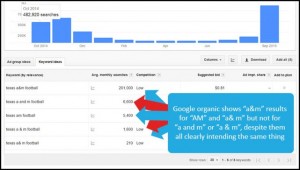September 26, 2016
Just a few days ago Google released an update to part of its search engine algorithm known as ‘Google Penguin’.

Google’s Penguin 4.0 update is here!
The update, titled Penguin 4.0, is actually the seventh update that has been released since its initial introduction back in 2012. While these are much needed and have been widely welcomed by the SEO community has a whole, many businesses have been waiting for these changes for several years, which is a hell of a lot of time to wait when it comes to running a small business.
Below we discuss whether the Google Penguin 4.0 update has arrived too late.
What are algorithm updates and where does Penguin fit in?
Google’s Penguin makes up part of its key search engine algorithm, alongside other updates such as Google Panda, Google Hummingbird, and Google Pigeon. Penguin was introduced in an attempt to stem many of the black hat SEO tactics, or ‘black hat webspam’ as Google called it, that were circulating the world wide web. These included things such as ‘keyword stuffing’ and ‘unethical link building‘ and it essentially meant that business could cheat their way to a number one ranking while those who focused on building quality websites suffered. When first introduced, Google said that Google Penguin affected around 3.1% of all internet search queries in English but have stated that this figure will be different now. This is most likely due to the fact that the figure will constantly be changing.
There can be no doubt that Google Penguin, or something similar, was needed to combat that growing use of foul tactics among users and marketers on the internet. People were using all kinds of tactics to ‘game the system’ and go against Google’s Webmaster Guidelines. Penguin acted as a sort of internet security measure, policing SEO practices and the way that people used ‘link building’ to artificially enhance their search results.

Penguin outlawed ‘link building’ practices designed to artificially enhance search results
Its aim was to do away with the spamming and promote genuine, quality-driven websites to the front pages of Google instead. But, as with any product, software, or idea, the first instalment of Google Penguin was far from perfect and caused outrage among SEO and business communities. Changes were desperately needed.
What was wrong with previous Penguin updates?
It drew too stark a line between right and wrong and moral and immoral. Penguin left out a large grey area in between where small business and website owners were unsure what was acceptable. It easily distinguished between those who were following SEO practices properly and those who were trying to cheat the system but it missed out the ones who were trying to do it properly but had made small or unknowing mistakes.
It was too drastic with its measures. Practices that had previously been accepted were suddenly causing huge penalties. It was clear that the way of doing things had changed. But laws change all the time, right? Yes, they do, and we can adapt to those changes straight away. The problem with Google Penguin is that it ran at intervals and only assessed websites when it ran.
This meant that for any business, website or e-commerce store that had made mistakes, Google would flag and demote their site in search results, but wouldn’t positively rank them again until the mistakes were corrected and Penguin was run again. This meant that if businesses had corrected their mistakes, many had to a long time to see the outcome! And we’re not talking about a few days here – the best case scenario was that businesses would be waiting months for the algorithm to be run again. Some users had even been waiting for years. This is what happened with the wait between Penguin 3.0 and Penguin 4.0, which took nearly two years!
How has this changed with Google’s Penguin 4.0 update?
Google have introduced two major updates with Penguin 4.0:
#1 Google Penguin will now be run in real-time
Rather than running Google Penguin once every so often, it will constantly be run and in real-time. The data is consistently refreshing, making changes instantaneously with immediate results.
#2 Google Penguin has now been made more granular
Previously, if parts of a website’s link building strategy fell short of what they deemed to be SEO-acceptable, it would penalise the website as a whole. The new Google Penguin 4.0 update has changed this. Google have not exactly confirmed what they mean when they say that they have made Google Penguin more granular, only that they will now not judge websites as a whole. Instead, they will penalise negative SEO factors at a much smaller level, perhaps meaning that they will just negatively rank specific pages rather than a whole website.
What does this mean for small businesses that have undergone SEO?
For small businesses that live, work and breathe SEO, this is obviously welcome news. Finally, a line has been drawn between those that deliberately try to spam and those that have just made an honest mistake. It seems strange that it has taken Google years to address this, especially given their power, money and resources, but better late than never as they say!
SEO and website building and marketing is a complicated, lengthy, and, at times, confusing and risky process. One small mistake could penalise your whole website, your business, and ultimately, your livelihood. The new Google Penguin 4.0 update should give much more leeway to those that make small mistakes, or those that may have mistakes related to an old webpage or SEO campaign. This means that business owners and webmasters, particularly those that have limited resources at their disposal, shouldn’t have to trawl through old content and links to comply with Penguin. From now on, they can now focus purely on building a quality website and effective marketing campaigns for the future.
But has Penguin 4.0 arrived too late?
Firstly, if you were impacted badly by Google Penguin 3.0 and had been waiting for Penguin 4.0 (hats off to you for being so patient!), then check your site regularly over the next couple of weeks to look for changes, even small ones.
Google has said that Penguin 4.0 will be rolling out gradually, so do not expect immediate changes. If after a couple of weeks, you see no change, or worse, a negative result, it is likely that you are still being penalised. However, it is likely for many, that Google’s Penguin 4.0 has come at a good time as you will be able to make changes now and expect to see results much faster than previously possible.
But what about for those businesses where Google Penguin 4.0 has arrived too late? Articles that are on the internet show the damage that the early version of Google Penguin caused, such as from Search Engine Journal and SME Insider. Others, such as this on the Daily Telegraph, show how some businesses almost went under because of Google Penguin. Here at Opace, we’ve been told by clients that they had to lay off staff and close down departments as a result of SEO undertaken by supposedly reputable agencies. It makes me wonder, how many businesses went bust as a result?
Let’s be completely clear; Google Penguin is very much needed to police the web as there will people out there who will try to do just about anything to get by. If a practice was previously accepted and working, article marketing and spun articles jumps to mind, then people were going to do it. However, suddenly making it wrong with updates such as Penguin and Panda and watching businesses suffer almost overnight was perhaps the wrong way to handle the situation.
To make matters worse, Google have no call centre of e-mail support on this matter for you to appeal or check if you are doing things right. This meant that businesses simply have to figure that all out for themselves or were forced to make a judgment call based on the often conflicting advice given by SEO professionals.
In some ways, businesses were lucky if they had suffered from a manual actions penalty as they would see some kind of communication in Google Webmaster Tools (now Search Console) and would be given guidance from Google on which links were creating the penalty. They could attempt to submit a reconsideration request and wait to see if that had worked, and if not, Google would often provide further clarification. At least this way, businesses knew whether they were on the right tracks. However, sadly with algorithm updates such as Penguin this wasn’t possible.
How Opace are looking ahead to the future of SEO
The new Penguin 4.0 update brings a welcome change to the way things have been done. As it runs in real-time, it will allow businesses to see almost instant results to the changes they make. So, if they’re are doing things wrong, they can quickly rectify the situation, learn from their mistakes and get on with running their business!
The advice that Google’s former Head of Webspam, Matt Cutts, gave to webmasters back in April 24, 2012 is:
Our advice for webmasters is to focus on creating high quality sites that create a good user experience and employ white hat SEO methods instead of engaging in aggressive webspam tactics.
While a bit vague, the idea still stands true today. If you have Penguin penalty that you’re looking to correct and need a bit more information on how to recover, then this article from Opace will be of great use to you. The other option of course is that you can look for an SEO agency or individual that specialises in penalty analysis and recovery, just make sure that you research them first and see what other customers say about their service.
Here at Opace, w’ve been in the SEO business a long time and have suffered the highs and lows that Google Penguin brought to the market when it was first introduced. Our best advice for any small business is to always to focus first on improving the user experience of your website, keep it refreshed with rich and useful content (see some useful guidelines here), ensure your meta data is meaningful and establish effective marketing strategies that will help you to acquire worthy links and social engagement. That way, you will find that you should always land on the right side of Google!
Image credits: Jamie Tapia and Kevinsji
Digital & Social Articles on Business 2 Community(94)






